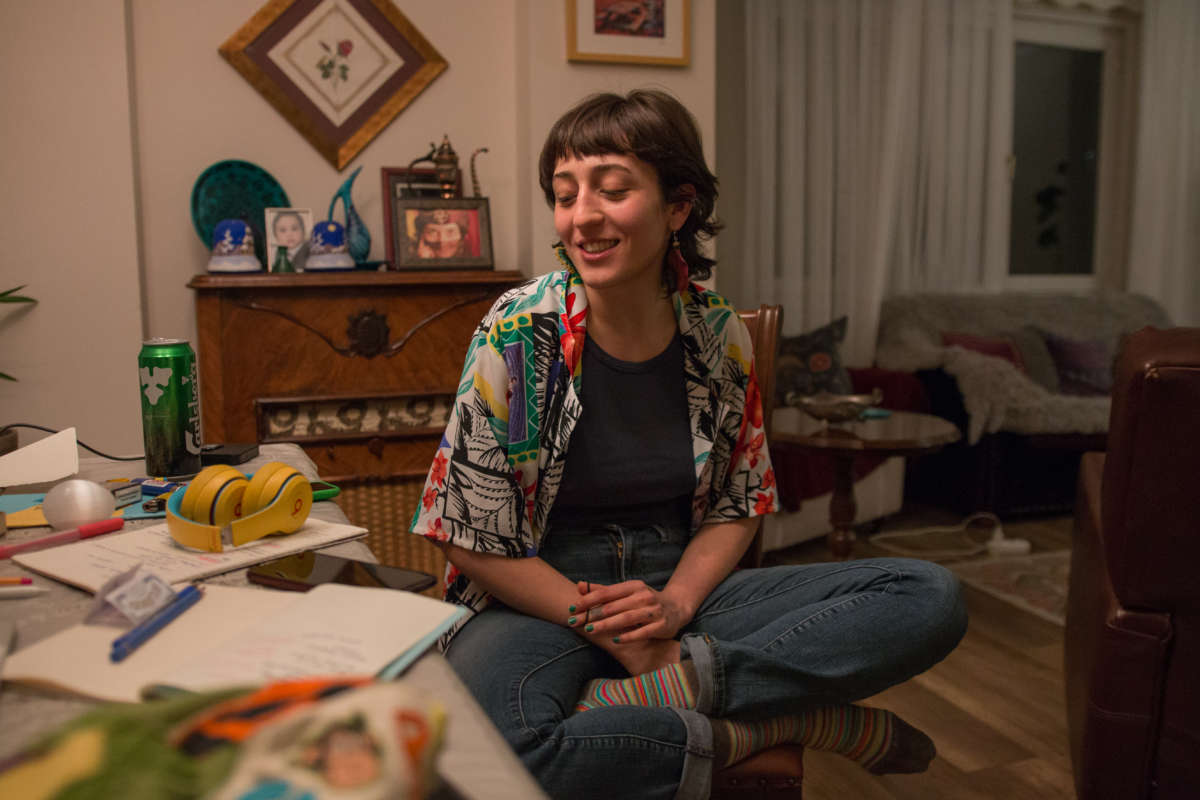Truthout is an indispensable resource for activists, movement leaders and workers everywhere. Please make this work possible with a quick donation.
Activism came to Hazar Kolancalı like a thunderstorm, at first a rumbling in the distance and then upon her all at once. The constant — and often violent — oppression of LGBTQI+ people in Turkey, a country that is increasingly hostile toward them, manifested suddenly for Kolancalı in a brutal arrest at the hands of Istanbul police. “I knew trouble was coming on the day I saw smear campaigns against us being pushed by pro-government media,” she told Truthout.
Despite her attempts to avoid conflict with police, government-executed violence and oppression is always lurking just around the corner for queer activists in Turkey.
In addition to health and economic crises, 2020-21 brought a sharp rise in government homophobia to Turkey, manifesting as hate speech from top government officials, the barring of “LGBT symbols,” withdrawal from the “Istanbul Convention” on the grounds of it “normalizing homosexuality,” and arrests of LGBTQI+ activists like Kolancalı.
On January 30, 2021, such government oppression was waiting for Kolancalı just outside the gates of her university campus. “We exited the campus and right away there were police everywhere, cars, sirens, and they were screaming our names. I was shocked. They came for me immediately and then there was chaos. The police used brutal force against us.”
Kolancalı, 22, a psychology student, artist and openly bisexual activist, found herself on the front lines of Turkey’s struggle for LGBTQI+ rights.
Two months prior, situated in a grassy field on Boğaziçi University’s campus, solidarity-seeking students mingled at an art exhibition of anonymous contributions organized by Kolancalı and fellow artist-activists. The exhibition was part of the protests against President Recep Tayyip Erdoğan’s appointment of a pro-government party member as rector to their university and the subsequent closure of the school’s LGBTQI+ student club. One piece of art, however, caught the disapproving eye of a passerby, and soon, the eyes of top Turkish officials, who demanded punishment.
After her arrest, Kolancalı spent 12 hours in a jail cell opposite her lover, she says, unsure of what fate awaited them. She was then placed on house arrest and left to await trial.
“We are creative because we are repressed. When you’re repressed, you have to find alternative ways of expressing yourself,” Kolancalı says of how her activism necessitates her art and vice versa. She pulls up a video on her laptop of her standing in a lineup with the other arrested students at the police station, looking somber. She then holds up her phone showing a lineup of four parallel figures, looking psychedelic and confident, which she drew to cope with the traumatic memory.
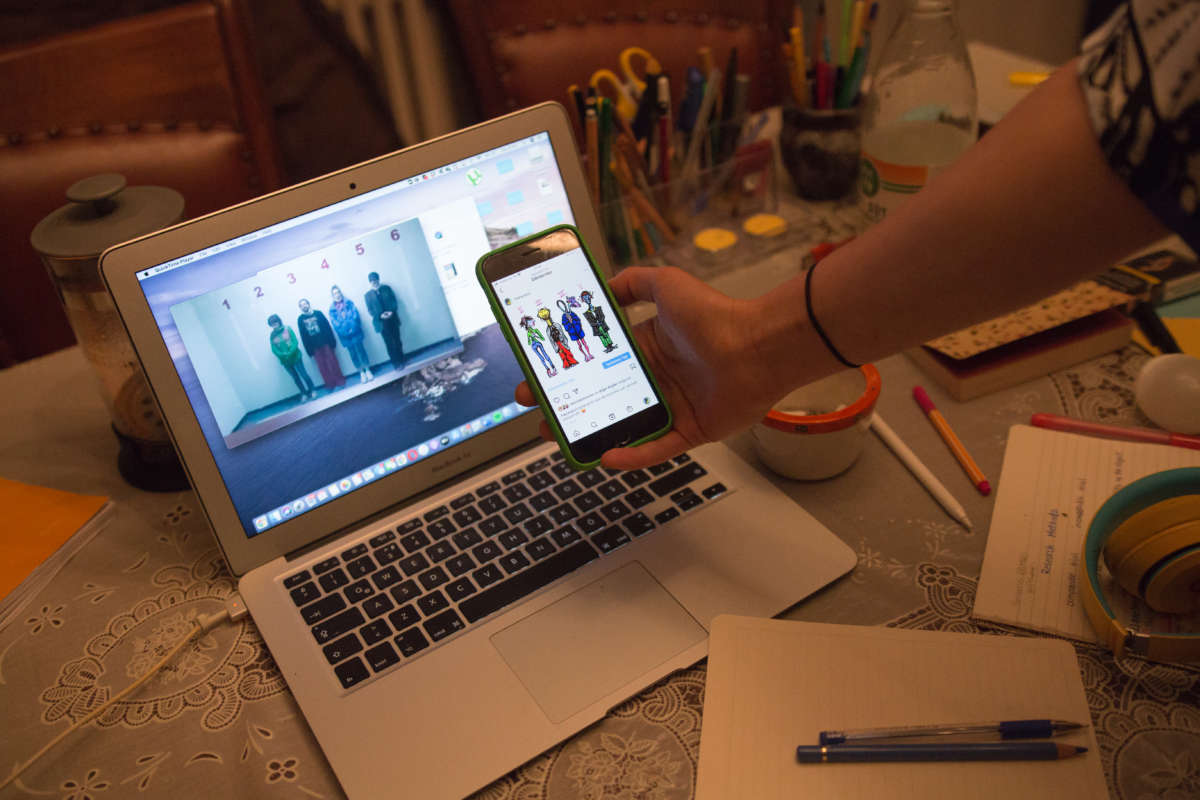
Government Homophobia
Since the beginning of the Boğaziçi protests on January 4 after Melih Bulu was appointed rector, over 500 people have been detained, many having been arrested as a direct result of their LGBTQI+ activism.
The Erdoğan regime hasn’t hidden its approval of violence against protesters, especially LGBTQI+ activists like Kolancalı. Rhetoric from prominent government officials has been explicitly LGBTQ-phobic, with Interior Minister Süleyman Soylu repeatedly calling the arrested students “LGBT perverts” and Erdoğan praising his party’s youth saying, “You are not the LGBT youth.”
Despite such setbacks, the government rescinded its decision without explanation, removing the appointed rector on July 15, 2021, via a midnight presidential decree — a major success for the protest movement based in LGBTQI+ inclusion and representation. The university’s LGBTQI+ student club, however, remains banned.
Although the Boğaziçi protests represent a recent swell in LGBTQI+ activism, Kolancalı’s experience with government homophobia is nothing new. On June 26, 2021, police fired tear gas and detained attendants at the annual Istanbul Pride march.
Turkey previously touted itself as an LGBTQI+ defender, with Erdoğan vowing to protect LGBTQI+ rights and Istanbul being home to the largest LGBTQI+ Pride march in the Muslim world before being broken up by police and banned in 2015. However, during its 19 years in power, Erdoğan’s ruling Justice and Development Party (AKP) has made an escalating shift toward cultural conservatism.
Erdoğan’s dramatic shift is part of a larger effort to secure support for his party from conservative religious circles. As AKP support has decreased, Erdoğan has made increasingly clear his willingness to utilize homophobic rhetoric and action in pursuit of new voting blocs.
This crackdown on LGBTQI+ rights was further cemented via the government’s civil society agenda post-2016 coup attempt, after which Turkey saw a drastic increase in violence directed at LGBTQI+ folks.
Loving Turkey as “a Toxic Relationship”
When asked whether she felt connected to Turkey, Kolancalı said “yes” but not without qualification. “It is a toxic relationship, but we are connected. I’m only 22 years old, and this conservative government has a history of 19 years. So, I didn’t realize that my destiny was being shaped by these conservative monsters.”
Homophobia in Turkey is often packaged as being “pro-family” in order to appeal to conservative religious voting blocs. Although homosexuality is not technically a crime in Turkey, it is frequently denounced as being “incompatible” with Turkish values.
“I am tired,” said Kolancalı. “I want to escape like everyone does. But I love my university. I love where I am living. I love the psychology department. I love my professors. I don’t want to let [the government] ruin this beautiful country. I love my country too, you know.”
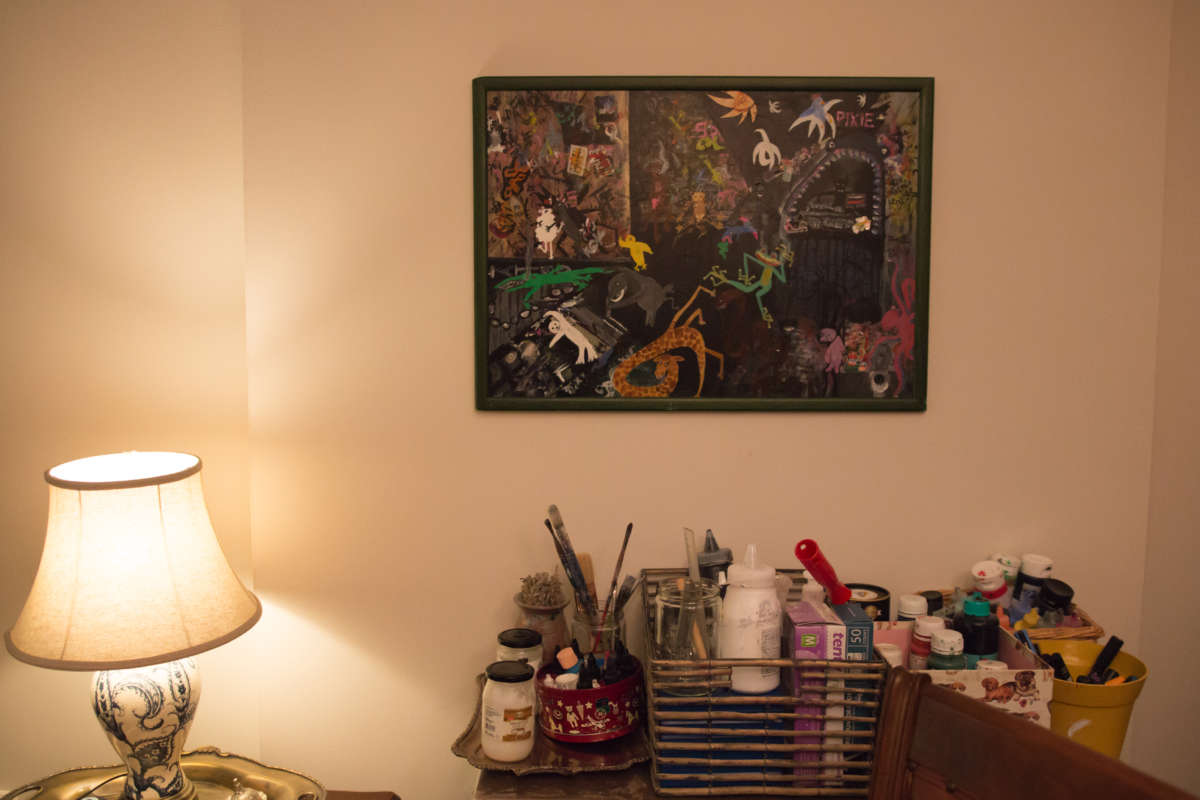
Queer Kurdish Struggle
Unbridled creativity seems to be a common theme among LGBTQI+ activists, and none encapsulates such unabashed artistic self-expression more than nonbinary designer and internet personality Çağlar Almendi. “I want to dress [Istanbul Mayor Ekrem] İmamoğlu. He should be wearing Almendi,” they tell Truthout.
Almendi not only hopes to design a colorful costume for suit-loving Mayor İmamoğlu, a potential opposition challenger to President Erdoğan, but also to start their own design brand.
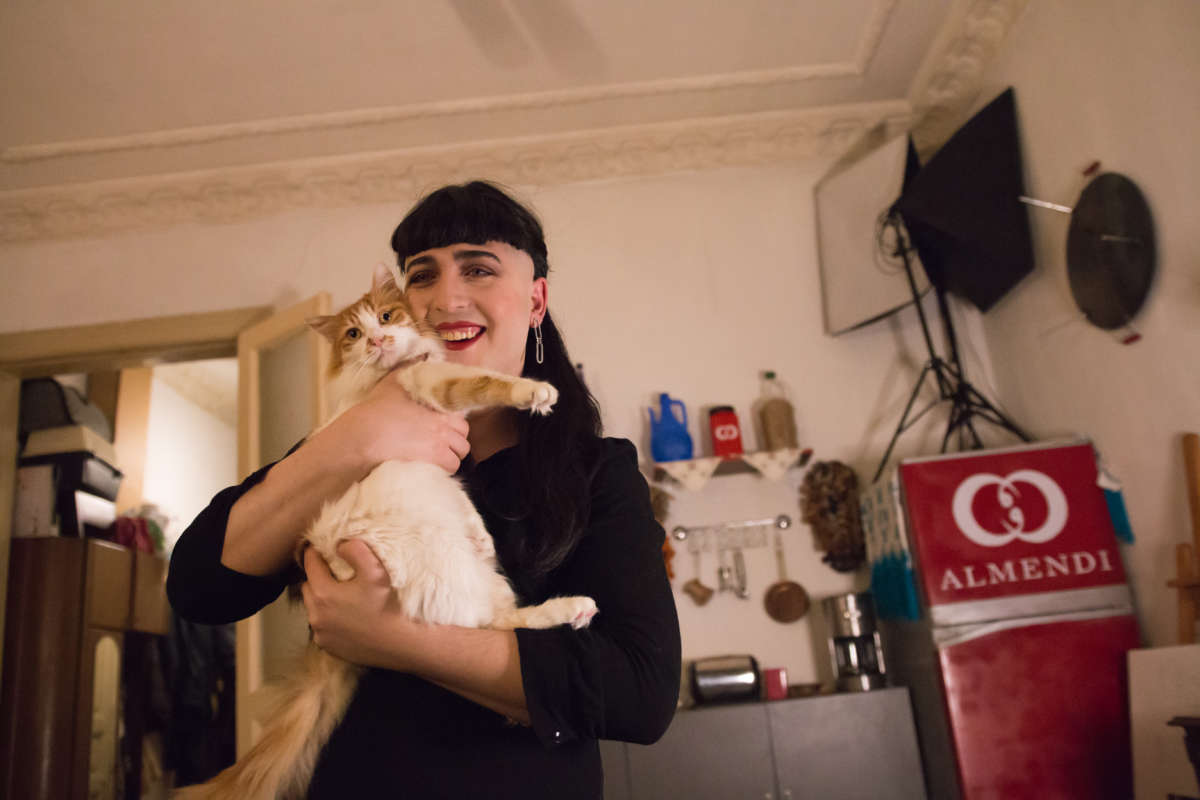
In addition to their queer identity, Almendi is also Kurdish, a minority ethnic group which the Turkish government often links to terrorism, using language similar to its strategy with regard to the LGBTQI+ community. “[Kurds] are the same as queer people. Their rights were stolen from them. They know how to survive and they can understand suffering. I think we are on the same road together,” Almendi says.
This cross section of identities can be seen throughout their artistry, from party planning to visual artwork. “At my parties, I use lots of traditional Kurdish music. So people are coming to my parties to dance and getting used to Kurdish people, getting used to drag queens, getting used to queer people. It becomes this center. It is all a protest.”
Regarding how these two facets of their identity relate, Almendi says, “There is queer blood in my veins. There is Kurdish blood in my veins, and I just want to let it explode everywhere. My anger and passion should be seen and felt.”
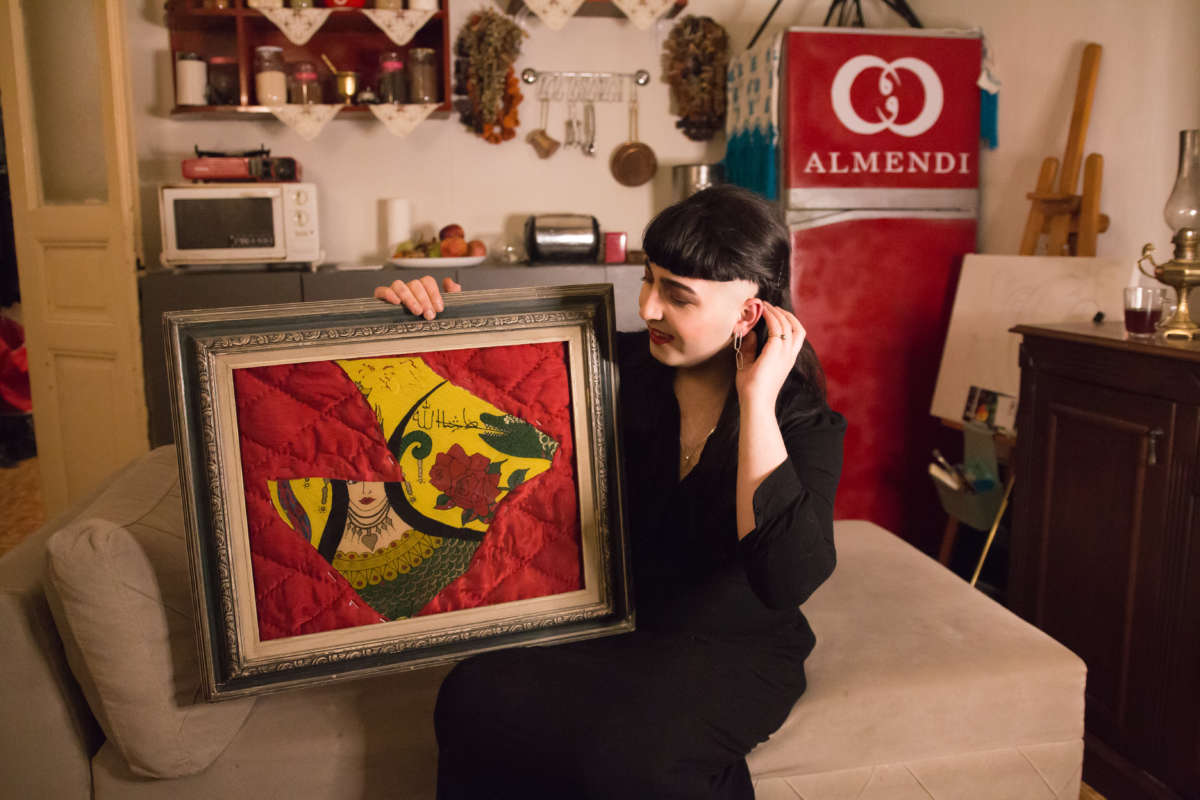
Almendi then retreats to a room in the back of the apartment and emerges with a framed piece of glass puzzled together with red fabric. Upon the glass is a painted Shahmaran, a Kurdish mythological creature, half-woman, half-snake. An Istanbul earthquake knocked the glass painting off the wall the year prior, after which the piece took on a new meaning.
“I put it back together mixed with a traditional quilt. The Shahmaran is dangerous, but she wants to be loved. I feel for her. I have my lover, and I feel like this is our family portrait. Because I am dangerous and broken, but he is keeping me together.”
Nobody Is Safe
Like Kolancalı, Almendi also found government oppression lurking around every corner of life.
“I got shot by the police with plastic bullets. We were in the streets, and they told us to go home. So, I did. I started walking toward my house, and they began to run after me. They chased me all the way to my house for like 10 minutes. Once I reached my door, they shot me in the back five times,” they told Truthout. “I couldn’t do anything. I just hid in my house because I was alone. I went to the police station to file a complaint, but they wouldn’t even let me give a statement. They just said, ‘You were at a protest. You deserve it.’”
Such experiences — including an ongoing lawsuit filed against Almendi by an AKP supporter for “disrespecting Islam” by wearing a headscarf in a YouTube video, years of school harassment and countless stories of friends’ experiences — have left Almendi and others feeling increasingly unsafe in their country and their communities.
“The government is becoming more Islamist, and they’re changing things. They’re taking more and more rights from us,” Almendi says. “Maybe tomorrow they will pass a new law in Turkey making gay people illegal. I don’t know what they could do. I don’t feel safe, and it’s getting worse.”
Oppression Breeds Resilience
Regarding how queer Turkish and Kurdish people cope with the worsening state of affairs in Turkey, Almendi says, “We’re all creating something. We’re not just living. Everyone is sad. Everyone is out of work. But we come together and help each other. We talk every day because every day is something new. We wake up and hear that one of our friends had been hit or shot or killed, and we can’t just keep silent.”
The AKP-era increase in arrests of Kurdish politicians, academics, journalists, human rights defenders, LGBTQI+ activists and lawyers is seen as the ruling coalition government’s attempt to weaponize identity politics to maintain support among nationalist and religious voting blocs as the party’s support dwindles.
In a country where rule of law has become virtually obsolete, for Levent Pişkin, a self-described “queer struggler,” human rights defender and lawyer, fighting against systems of oppression via legal channels has become next to impossible.
“The relationship in Turkey between the law and the LGBTI+ community is not one of ignoring anymore,” Pişkin said. “The state’s policy has started to be based on hate toward the LGBTI+ community.”
“I Practice Law, Which Doesn’t Exist”
Sitting at his desk in the home he lives in with his two sisters, Pişkin pulls out a package of nicotine gum and talks about how acupuncture helped him quit smoking. “They put one right here,” he points to the middle of his chest, “It felt like clouds.”
About his work as a human rights lawyer, however, Pişkin takes a more somber tone.
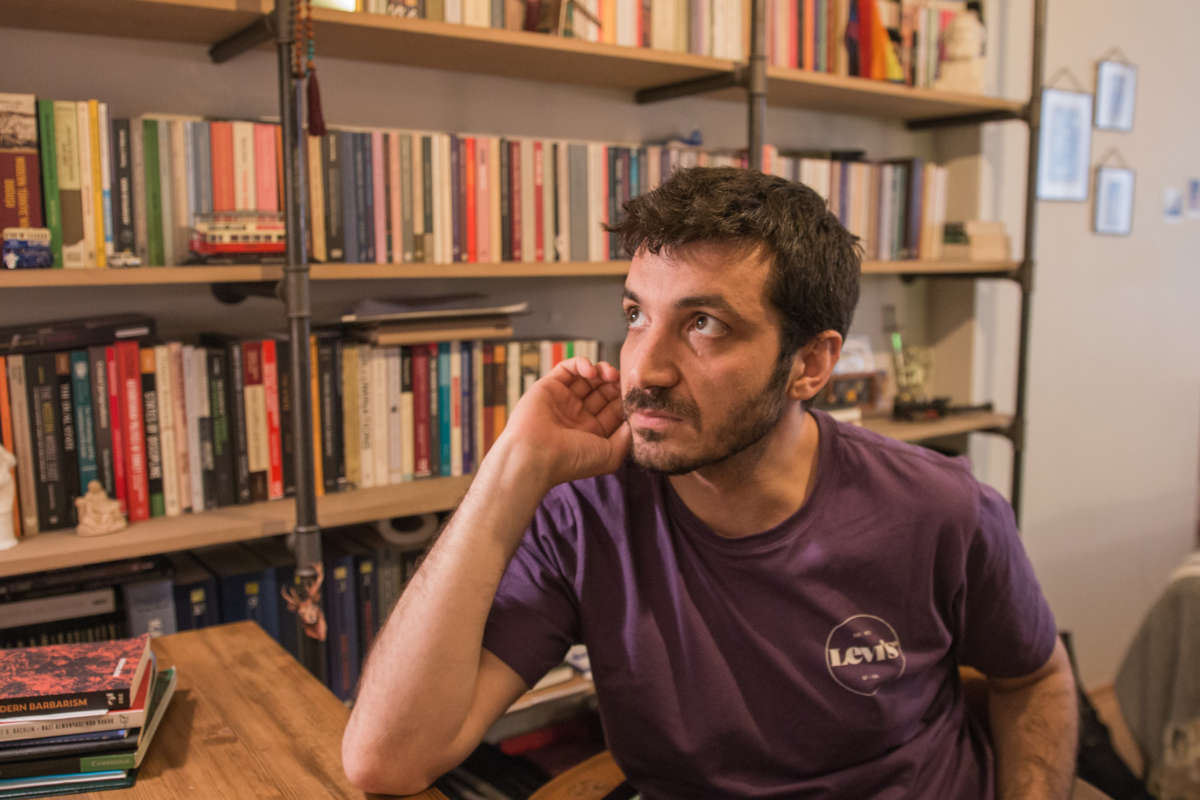
“I practice law, which doesn’t exist,” Pişkin said. “Your role in the courthouse is nothing. Sometimes you feel like an actor in a play, but not a lead actor or even a supporting actor, maybe the fifth or sixth actor.”
Despite his reputation in human rights advocacy circles, Pişkin, an openly gay man, has also run into a great deal of LGBTQI-based discrimination. In 2014, he was sued by the government for defamation after using the Turkish word ‘ibne’ (Turkish slang for gay) and President Erdoğan’s name in the same tweet. The case is still ongoing. “Of course, I don’t feel safe,” he says.
Pişkin was also detained via a home raid in 2016 and put into an isolated jail cell for three days in connection with his legal representation of imprisoned Kurdish politician Selahattin Demirtaş.
“The relationship between the LGBTI+ community and the law has always been complicated because no laws have ever existed in Turkey to protect the LGBTI+ community,” Pişkin says. “But we try to find legal holes to protect people.”
Regarding his history of advocating on behalf of LGBTQI+ activists, he says, “I have something in common with them. We are defending the same thing. You can speak for them and for yourself at the same time.”
Kolancalı on Trial
Pişkin’s role as a lawyer is of increasing importance as he represents more and more LGBTQI+ activists, including Kolancalı.
He represented Kolancalı at her hearing at Istanbul’s Çağlayan courthouse on March 17. Demanding her immediate acquittal, he argued the charges against her for “inciting hatred and insulting religious values” were not substantiated.
Pişkin, leaning against his impossibly full bookcase, gives his final prognosis, “Change is not a quick thing. It will take time. It will cost lives. But it will change. Not tomorrow, but maybe in two years. Maybe in 20 years, it will change. We are building a house, and it is my role to add one stone, just like everyone else.”
Kolancalı was released from house arrest following the hearing. At the most recent hearing on July 5, witness testimony from several university security guards was heard, but the trial remains ongoing. The next hearing will be on November 17.
The Revolution Will Be “Fun”
“The reason protests are dominated by LGBTI+ people is because we are having fun while we are there. We are going because we want to. It is not like a job. LGBTI+ people just know how it’s done,” Kolancalı says. “What we do is always peaceful, because we are humans, you know, we are humans with pure hearts, and we like what we are doing. We are very loud! We know what love is!”
Regarding what she sees on the path ahead, Kolancalı is even more optimistic and enthusiastic than the others. She sees the Erdoğan-controlled government’s grip on power as quickly diminishing and believes this recent homophobic turn will be ultimately unsuccessful in achieving their desired aims. This belief is supported by recent polling trends that indicate support for Erdoğan and his party is dropping, with AKP support having fallen to 36 percent most recently.
“The government’s only weapon right now is hatred, and they’re trying to provoke people to be hateful against some kind of ‘other.’ This year’s ‘other’ is the LGBTI+ community. It is so obvious,” Kolancalı says. “But we are the writers of history. So, even though they make these aggressive decisions, we are going to be the ones who tell this story.”
A terrifying moment. We appeal for your support.
In the last weeks, we have witnessed an authoritarian assault on communities in Minnesota and across the nation.
The need for truthful, grassroots reporting is urgent at this cataclysmic historical moment. Yet, Trump-aligned billionaires and other allies have taken over many legacy media outlets — the culmination of a decades-long campaign to place control of the narrative into the hands of the political right.
We refuse to let Trump’s blatant propaganda machine go unchecked. Untethered to corporate ownership or advertisers, Truthout remains fearless in our reporting and our determination to use journalism as a tool for justice.
But we need your help just to fund our basic expenses. Over 80 percent of Truthout’s funding comes from small individual donations from our community of readers, and over a third of our total budget is supported by recurring monthly donors.
Truthout has launched a fundraiser to add 460 new monthly donors in the next 8 days. Whether you can make a small monthly donation or a larger one-time gift, Truthout only works with your support.
